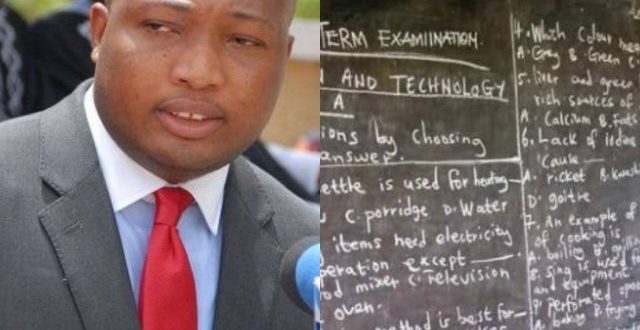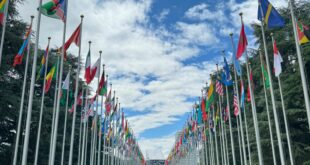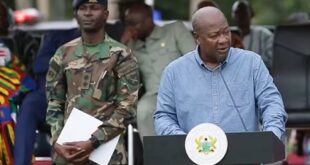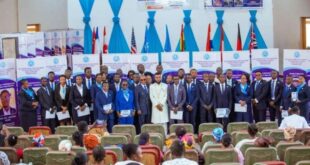The Member of Parliament for North Tongu has called for the establishment of a fund to finance the medical and legal fees of journalists who come under attack in the line of duty.
Samuel Okudzeto Ablakwa made the suggestion as part of a statement he delivered on the floor of Parliament to mark the ‘International Day to End Impunity for Crimes against Journalists.’
Speaking on the issue, Mr. Ablakwa bemoaned the rising spate of attacks on journalists across the country.
Undercover journalist, Ahmed Suale, was shot dead in January in an unprecedented fashion months after an anti-corruption documentary he partook in was aired.
Freelance investigative journalist, Manasseh Azure Awuni, had to be flown out of the country after receiving death threats for an investigative documentary.
Several journalists have also been physically attacked in the line of duty, even by the police.
Mr. Ablakwa called on the security agencies to investigate all these matters and bring the perpetrators to book.
Read Mr Ablakwa’s full delivery below
STATEMENT BY SAMUEL OKUDZETO ABLAKWA, MEMBER OF PARLIAMENT FOR THE NORTH TONGU CONSTITUENCY AND RANKING MEMBER, COMMITTEE ON FOREIGN AFFAIRS TO MARK THE UNITED NATIONS’ DAY TO END IMPUNITY FOR CRIMES AGAINST JOURNALISTS
Right Honourable Speaker, I am most grateful for the opportunity to make this statement.
Last Saturday, the 2nd of November, 2019 was commemorated by UN member states as the International Day to End Impunity for Crimes against Journalists.
UN Secretary-General, Antonio Gutteres in an address: “noted and condemned the rise in the scale and number of attacks on journalists and media workers, as well as incidents that make their work much harder, including threats of prosecution, arrests, imprisonment, denial of journalistic assess and failures to investigate and prosecute crimes against them.”
According to UNESCO report titled: “Intensified Attacks, New Defences”, more than 1,100 journalists have been killed between 2006 and 2018 for reporting the news and bringing information to the public. On average, this constitutes one death every four days. In nine out of ten cases, the killers go unpunished.
Impunity leads to more killings and is often a symptom of worsening conflict and the breakdown of law and judicial systems.
Mr. Speaker, it is in recognition of the far-reaching consequences of impunity, especially of crimes against journalists, that the United Nations General Assembly adopted Resolution A/RES/68/163 at its 68th session in 2013 which proclaimed 2 November as the ‘International Day to End Impunity for Crimes against Journalists’ (IDEI).
Mr. Speaker, the resolution urged the Member States to implement definite measures countering the present culture of impunity.
The date was chosen in commemoration of the assassination of two French journalists Ghislaine Dupont and Claude Verlon in Mali on 2nd November 2013.
UNESCO, as well as other advocate groups are concerned that impunity damages whole societies by covering up serious human rights abuses, corruption, and crime. Governments, civil societies, the media, and everyone concerned to uphold the rule of law are being asked to join in the global efforts to end impunity, especially against journalists.
Mr. Speaker, the history of Ghana’s media is a checkered one from the days the first newspaper, the Gold Coast Gazette was published in 1822 by Gold Coast Governor Sir Charles MacCarthy right through to anti-colonial newspapers such as the Accra Evening News established in 1948 by Kwame Nkrumah and the Morning Telegraph of Sekondi launched in 1949.
Though Ghanaians have always yearned for freedom, there were times when it was generally believed that a culture of silence had somewhat been allowed to take root leading to a wave of renewed advocacy for free expression as championed by leading lights including Prof. Adu Boahene, Prof. P.A.V. Ansah, Mr. Tommy Thompson, then Managing Editor of The Free Press and Mr. Kofi Badu, who was Editor of The Spokesman.
This was the period renowned journalists such as Abdul Malik Kwaku Baako, Kwesi Pratt Jnr. and Ambassador Haruna Attah had faced varying prison terms in the 1980s and 90s. It is on this score that the Government of President John Agyekum Kufuor deserves plaudits for repealing the Criminal Libel Law even as President Jerry John Rawlings must be commended for superintending the processes leading to the promulgation of the1992 Constitution which guarantees the freedom and independence of the press in Ghana.
Mr. Speaker, though Ghana now boasts of a vibrant and pluralistic media which is striving to perform its functions of keeping the citizenry informed, ensuring that public officers are accountable and leading causes for societal progress; there are issues we must all be concerned about as democrats.
Mr. Speaker, as we observe this day, it is sad to acknowledge that for the first time in Ghana, journalist Ahmed Hussein-Suale was brutally murdered on 16th January this year. We must use this day to appeal to investigative authorities to expedite work in identifying the perpetrators and bringing them to justice. I also appeal to authorities to provide regular updates so that it does not appear as though Ahmed’s death has been forgotten.
Beyond Ahmed’s killing is the litany of physical attacks that too many journalists have had to suffer in recent years. The Media Foundation for West Africa and the Ghana Journalists Association have chronicled at least 17 cases of attacks on journalists in the course of their work in 2018 alone.
Following these were a series of similar attacks meted out to journalists in their line of duty at different times:
Three journalists from the Ghanaian Times newspaper including a lactating mother were terribly assaulted by 10 police officers in March this year.
In May, the Media Foundation for West Africa reported that they had had to fly award-winning investigative journalist Manasseh Azure Awuni to South Africa following death threats on his life after a documentary he produced.
On 4th August 2019, a reporter with the Graphic Communications Group Limited (GCGL), Ms. Della Russell Ocloo was physically attacked by some agitated members of a church who claimed taking videos of their church proceedings was intrusive.
Edward Adeti, Starr FM’s Upper East Regional Correspondent had to be relocated by his employers with the GJA calling for state protection after he exposed a bribe syndicate related to mining in that region which led to the resignation of Minister of State, Rockson Bukari. This list is by no means exhaustive.
Mr. Speaker, even though these brutal acts are traumatizing and leave permanent scars, I believe our country can do better in swiftly apprehending culprits and handing down severe punishment.
Mr. Speaker, it is paramount that as a country, we take decisive steps in addressing recurrent attacks against journalists which mostly goes unpunished. Some law enforcement agents who are tasked with protecting the rights of citizens flout the rules with impunity and if left unattended may not only be spelling doom for journalism but also for all citizens.
Mr. Speaker, it is important to highlight that impunity against journalists can also come in the form of denying them decent working conditions. When Governments deliberately boycott media platforms, close down media houses and also deny critical media Government advertisements with the view to financially emasculate the press – all these perpetuates impunity against the inky fraternity.
The National Media Commission should do more in defending the liberties of journalists and ensuring that those who harm journalists find no peace.
Mr. Speaker, I propose the establishment of a special fund to support journalists who come under attack by way of their medical bills to aid them recover and by way of their legal bills in the pursuit of justice.
As we mark this important day on the calendar of the UN, we are called to take into account the havoc of neglecting unpunished crimes perpetuated against journalists and its harrowing effects on the society at large.
I am most grateful, Mr. Speaker.
Source: Myjoyonline.com
 Home Of Ghana News Ghana News, Entertainment And More
Home Of Ghana News Ghana News, Entertainment And More





